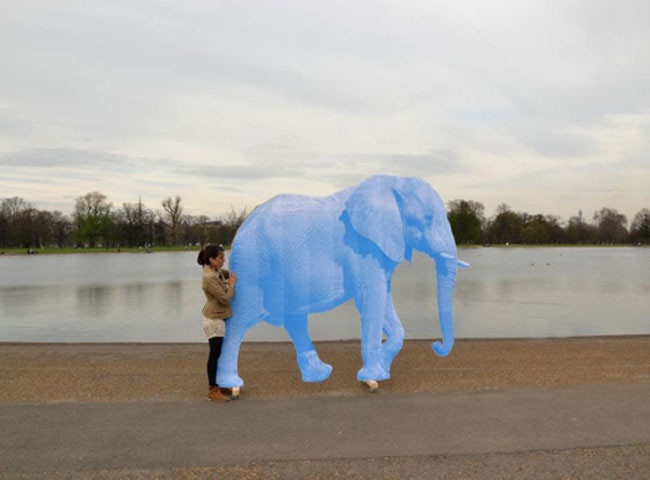Metáfora ou a tristeza virada do avesso
-
Réalisé par Catarina Vasconcelos • Écrit par Catarina Vasconcelos
-
Portugal • 2014 • 32 minutes • Super 8 mm • Couleur
- Réalisation :
Catarina Vasconcelos - Écriture :
Catarina Vasconcelos - Image :
Mariana Nemer, Margarida Rêgo, Catarina Vasconcelos, Nuno Vasconcelos - Son :
Mike Wyeld - Montage :
Catarina Vasconcelos - Musique originale :
Lucie Troger
- Production (structure) :
Catarina Vasconcelos - Ayant droit :
Catarina Vasconcelos
- N° ISAN :
non renseigné
Résumé
Dix ans après la mort de leur mère, un frère et une sœur correspondent. Le régime d’images intrinsèquement nostalgique et granuleux du super 8, plus proche des sens que du récit, s’offre en traduction formelle d’une trouvaille que la cinéaste et son frère ont faite à cette époque : "une boîte chinoise qui gardait l’odeur de Maman". À partir d’un deuil intime et d’un souvenir puissant mais évanescent, c’est la "boîte chinoise" de l’Histoire que le film ouvre. Mais le Portugal révolutionnaire de 1974, celui des parents de la cinéaste, a ici pour particularité d’être frappé d’indirect. La mère a beau poser sur une photo râteau en main en pleine Réforme agraire et le père arborer sur un autre cliché la barbe cheguevarienne, les photos familiales creusent l’énigme de leur engagement. Leur témoignage à jamais impossible à recueillir, la génération née dix ans après la Révolution des Œillets se représente presque ces attributs comme fictionnels.
"Alternating Super-8, digital footage and the correspondence with her brother, the filmmaker evokes their deceased mother and the Portuguese revolution, which she only gets to know through these diffracted memories.
Ten years after their mother’s death, a brother and sister write to each other. The use of intrinsically nostalgic and grainy Super-8 images — closer to the senses than the story — provide a formal translation of a "treasure" that the filmmaker and her brother discovered at this time: "a Chinese box that had kept Mother’s smell". Drawing on an intimate mourning process and powerful memories, what the film opens is the "Chinese box" of History. But the revolutionary Portugal of 1974, the Portugal of the filmmaker’s parents, is only obliquely present. Certainly, her mother posed rake in hand for a photo in the heat of the Agrarian Reform while another snapshot shows her father sporting a Che-Guevara beard, but the family photos only deepen the enigma of their activism. Their testimony now being impossible to record, the generation born ten years after the Carnation Revolution almost see these attributes as fictional. By alternating Super-8 film and extremely accurate digital footage, Catarina Vasconcelos makes an almost cruel separation between those who are forever enhanced by a sort of seventies’ patina (the father’s pop group that looks as if it were from Miguel Gomes’ Tabu) and the grandparents who have survived, aged and perhaps forgotten. Between the two formats, two generations and two cities (her letter is signed from London), the filmmaker finds in a "ginormous" metaphor her own way of combatting oblivion."
(Charlotte Garson - Cinéma du réel)
"Ein junger Mann schreibt seiner Schwester, der Filmemacherin, aus Lissabon nach London. Er gesteht ihr, dass er, neun Jahre nach dem Tod der Mutter, eine Leere in seinem Leben fühlt. Sie antwortet ihm mit einem Film, um jene Leerstelle zu füllen. Der Bruder beschreibt seine Sehnsucht nach einer Zeit, in der er noch gar nicht lebte, eine Vergangenheit, die verloren scheint. Es ist die Zeit der Mutter, die Zeit der Revolution in Portugal, die ein innerlich gebrochenes Land wieder mit sich vereinte. Das Gefühl der Freiheit ist heute für die Nachrevolutionsgeneration, mitten in der Eurokrise, schwer greifbar. Kann man sich in der Zeit rückwärts filmen?
Das körnige Super-8-Material schlägt eine Brücke ins Gestern. Die Kamera sucht Orte von drei Familiengenerationen auf, die sich nur noch halb anfühlen. Auch das Meer gehört dazu, von dem der Großvater einst sagte, es sei eine Metapher für die Welt. Immer wieder kommt der lyrische Wortwechsel zwischen Bruder und Schwester auf das Gefühl der Halbheit zurück. Auf der Bildebene wird nach der anderen Hälfte gesucht, durchaus mit einer feinen Ironie, die den melancholischen Grundton aufhebt. Eine Metapher bleibt schließlich eine Metapher. So entsteht ein selbstreflexives, poetisches Suchbild, in dem das Persönliche stets über sich hinausweist."
(Lars Meyer)
Sélections et distinctions
- 2014 • RIDM - Rencontres internationales du documentaire de Montréal • Montréal (Canada) • Prix du Meilleur moyen métrage international
- 2014 • DOK Leipzig - International Leipzig Festival for Documentary and Animated Film • Leipzig (Allemagne) • Sélection
- 2014 • Doclisboa - Festival Internacional de Cinema Documental • Lisbonne (Portugal) • Compétition - Courts métrages portugais
- 2014 • Images en bibliothèques • Paris (France) • Film soutenu par la Commission nationale de sélection des médiathèques
- 2014 • Cinéma du réel • Paris (France) • Prix du court-métrage
Comment avoir accès au film ?
-
Édition DVD
- Il n'existe pas d'édition DVD à notre connaissance
-
Accès VOD
- Il n'existe pas d'accès en VOD à notre connaissance
- Diffusion non commerciale / Consultation


